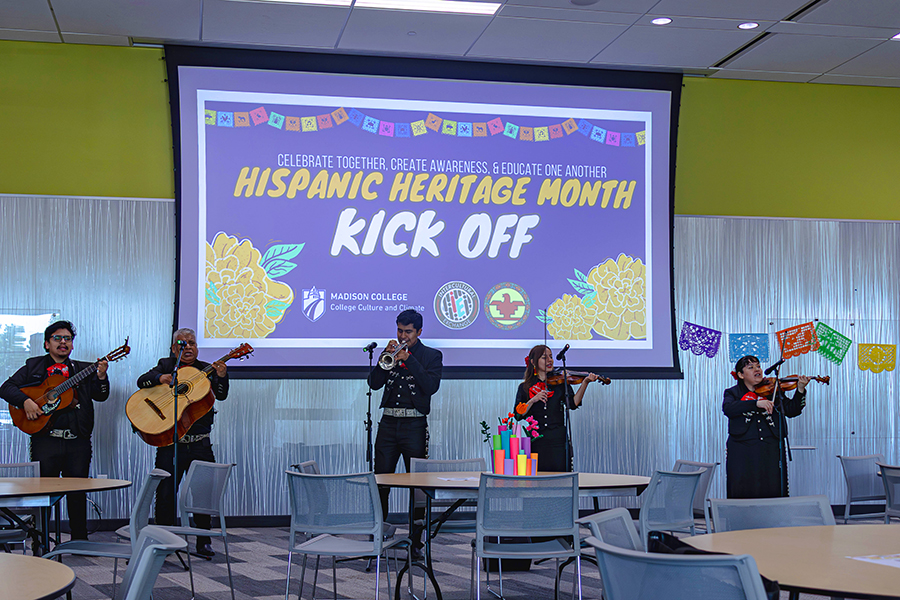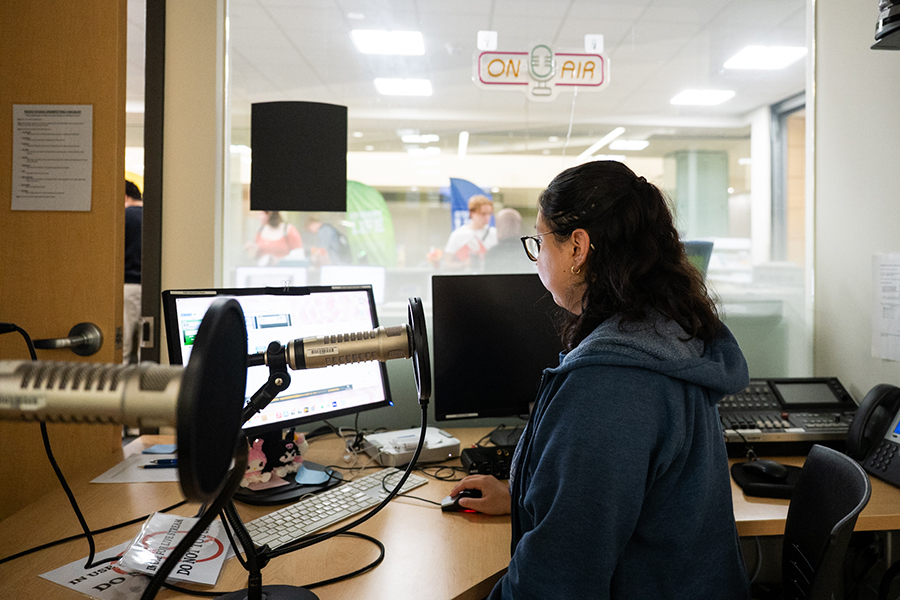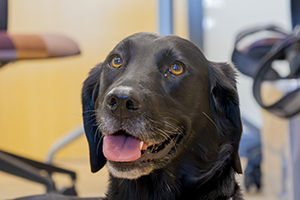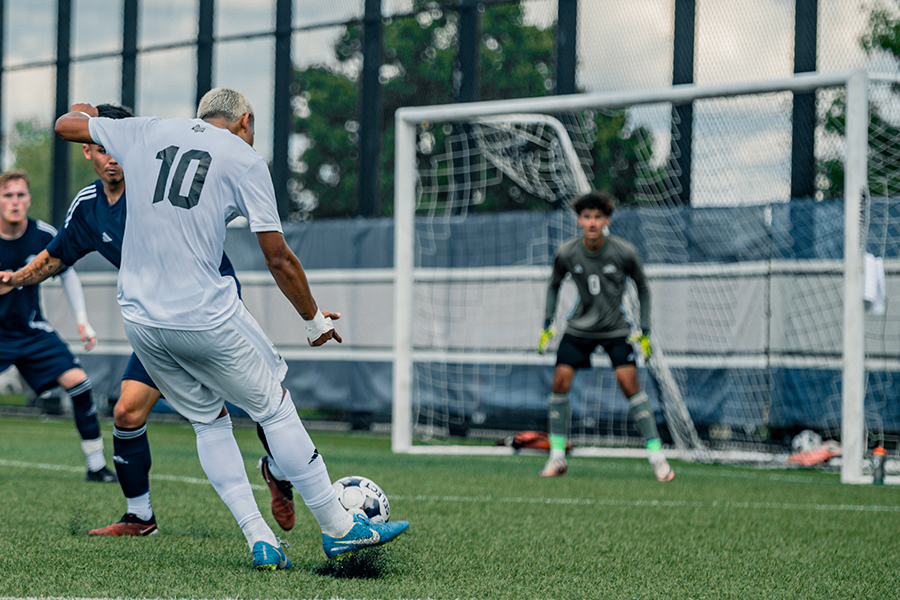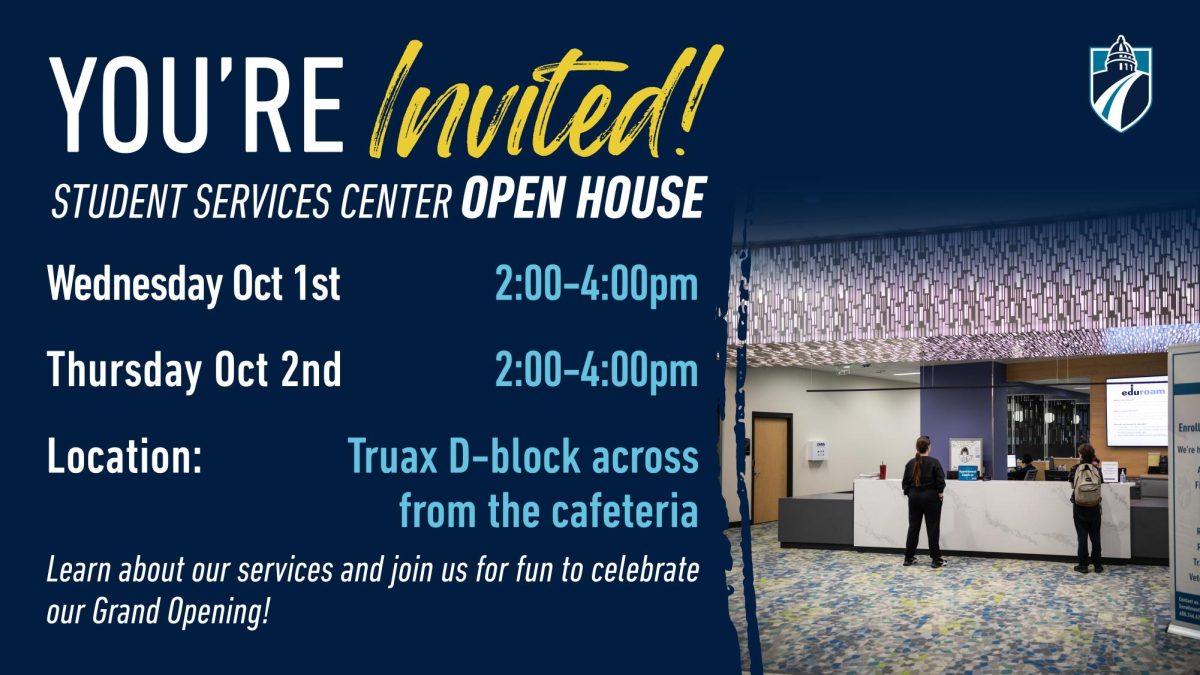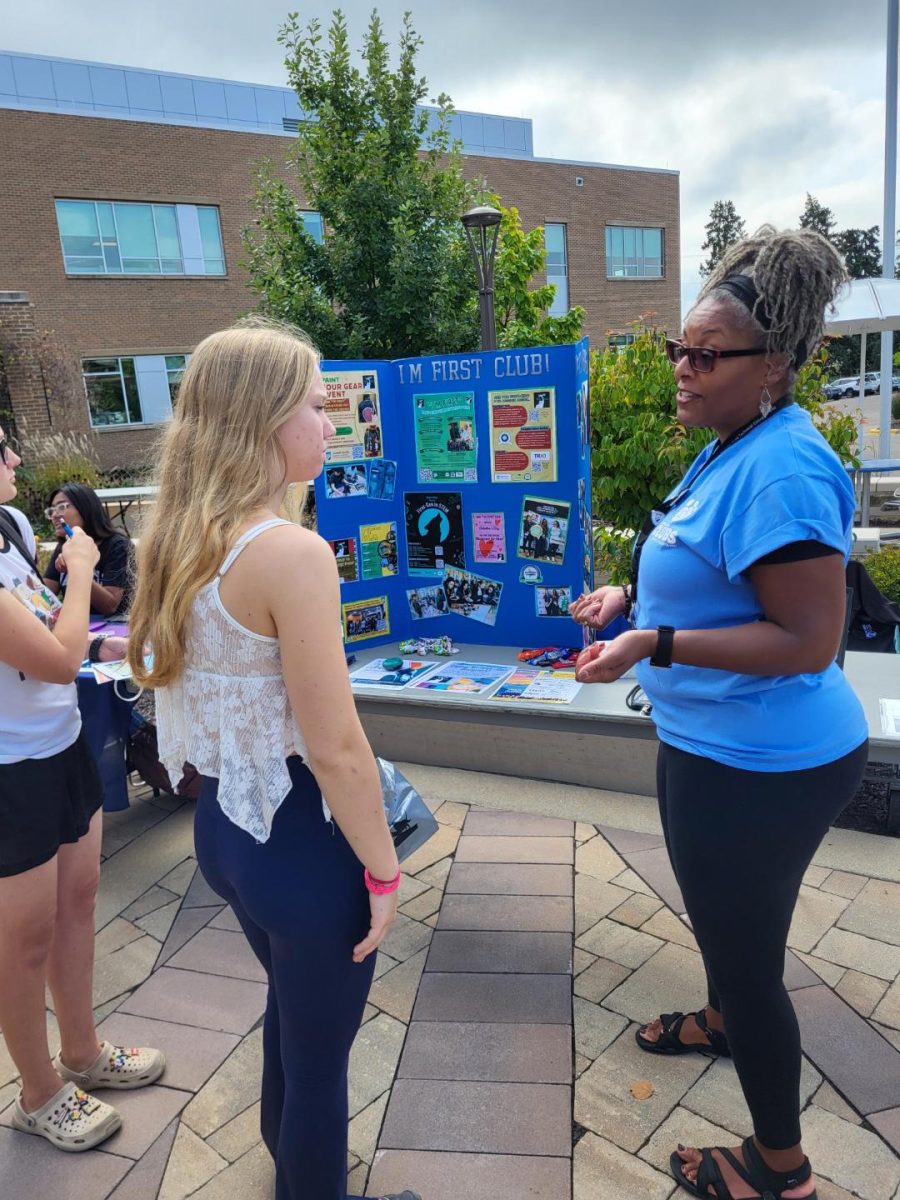The Madison College Peer Health Educators hosted a pet therapy session at the Student Wellness Center, inviting students to take a break with Bailey, a certified therapy dog, and her handler, Arid. The event was one of the group’s weekly wellness offerings meant to create space for connection as much as to provide information.
Bailey’s path to becoming a therapy dog started during COVID. Adopted first as a foster, she went through basic obedience classes where her calm and affectionate nature stood out. A trainer suggested therapy work, and soon Bailey and Arid were certified through Pet Partners and connected locally with Dogs on Call.
That was four years ago. Since then, the pair have volunteered across the community, from classrooms and hospice centers to hospitals and firehouses. They appear at stress relief events on college campuses and other gatherings where a quiet presence is required. “It has been the best experience,” Arid said, watching Bailey lean into the hands of students.
The Peer Health Educators saw the fit right away. Their program is a student-run club that operates out of the Health Building with support from faculty advisers.
Every week, the group hosts events focused on issues affecting students. Past sessions have covered sexual health awareness, suicide prevention and breast cancer awareness. A program on heart health is coming up next.
More than just presentations, these events are about providing students with a space to connect. “We want this to be a safe space for everyone,” one student educator explained. “If someone has a question they can come in and there will always be somebody here to talk.”
That sense of safety was on display during the pet therapy session. Students who dropped in lingered on the carpet with Bailey, trading stories and laughter as the mood in the room lightened.
The Student Wellness Center, located on the first floor of the Health Building, serves as the home base for the Peer Health Educators. The center doubles as a quiet refuge and also stocks free resources for students. First aid kits, hand sanitizer, feminine hygiene products, fresh produce, condoms and other supplies are available to anyone who needs them. The idea is to remove barriers to wellness in small but meaningful ways.
For students, that mix of support matters. One week might be resources for physical health. Another might be a conversation about mindfulness or a reminder that they are not alone. And sometimes it is as simple as petting a dog between classes.
Bailey made sure of that. Her presence offered a reminder that wellness is not always found in a handout or a lecture. Sometimes it arrives on four paws and leaves you calmer than when you walked in.

